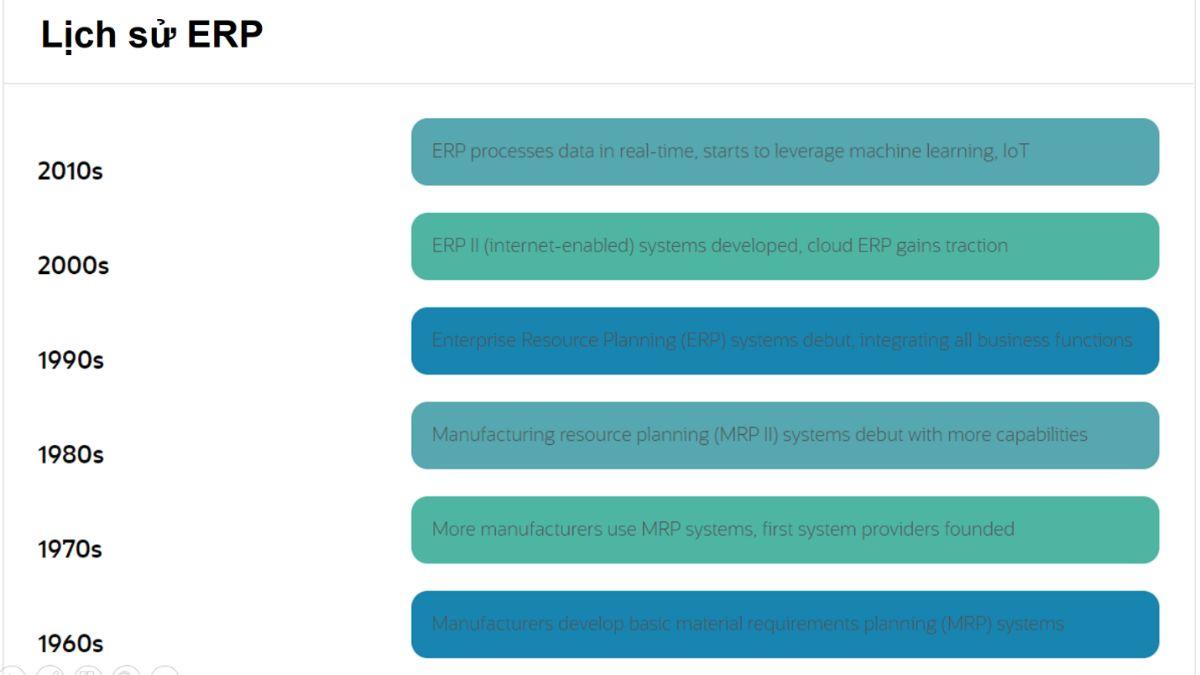The integration of essential business functions throughout an organization is facilitated by the adoption of an Enterprise Resource Planning (ERP) system. The increasing prevalence of ERP system implementation underscores its significance in fostering success for businesses.
ERP software connects every aspects of your business
The term ERP stands for Enterprise Resource Planning, which encompasses various business departments like inventory management, purchasing, accounting, engineering, sales, production, and the shop floor. Essentially, ERP software connects and integrates these departments through a shared database, enabling streamlined processes and accurate information sharing across the entire company. This eliminates redundant data entry, provides a single source of truth, and facilitates efficient collaboration between different departments. Ultimately, ERP allows for better resource planning, improved business management, seamless inter-departmental collaboration, and faster order fulfillment for enhanced overall efficiency.
I. A brief history of ERP software

The term ERP, coined by Gartner Group in the 1990s, originated in the manufacturing industry. Originally intended to address the need for improved inventory management, basic software solutions were born and called MRP (Material Requirements Planning System), to track inventory and includes rudimentary manufacturing, purchasing, and shipping functions.
The adoption of MRP systems increased in the 1970s, evolving into more sophisticated versions known as MRP II (Manufacturing Resource Planning systems) by the 1980s. These advanced systems incorporated additional manufacturing processes and enhanced capabilities for scheduling and production.
In the 1990s, the first true ERP systems emerged, expanding beyond inventory control and manufacturing to encompass various departments like accounting, finance, and sales. These ERP solutions laid the foundation for the integrated, multi-departmental systems we recognize today.
II. The future of ERP system
In the future, key technological trends such as artificial intelligence (AI) and the Internet of Things (IoT) will impact ERP systems. More specifically, ERP solutions may utilize machine learning algorithms – a part of artificial intelligence – to process data and predict business trends in the future. Thanks to the power of machine learning, manual tasks can be eliminated, and ERP systems can become smarter and more efficient over time. Machine learning algorithms will help synchronize data and provide faster feedback, bringing numerous benefits to businesses.
III. ERP software - Not just for large scale enterprises
Don't be intimidated by the term 'enterprise'—ERP (Enterprise Resource Planning) systems are not exclusive to large corporations. Even if you're a small or medium-sized manufacturer, you can leverage the benefits of an ERP tailored to businesses of all sizes. In today's dynamic market, specialized ERP vendors cater to the unique needs of companies like yours, ensuring you don't miss out on the transformative advantages.
Discovering the right ERP vendor is key. Look for experts in your industry who specifically work with businesses of your scale. These vendors provide solutions designed to seamlessly integrate into your operations, offering the connectivity needed to propel your business forward.
As a small- to mid-sized manufacturer, implementing an ERP system brings you the same advantages that larger organizations enjoy. Experience the efficiency of a centralized and integrated system, automated business processes, real-time data access, and heightened throughput. ERPs enable you to revolutionize your manufacturing operations, saving time and money by reducing operational costs and enhancing overall efficiency. Additionally, enjoy the benefits of secure data management and accurate business forecasts.
ERPs serve as the backbone of the manufacturing industry, empowering you to achieve your goals and foster business growth. Embrace the flexibility and tailored solutions that an ERP system can provide to elevate your manufacturing processes and streamline your path to success.
IV. Practical applications of ERP software
1. Helps build accurate and consistent operating procedures
With advanced technology infrastructure and standardized management processes, ERP will create a smooth operational flow for businesses. A precise and unified process will help businesses easily supplement and adjust information, ensuring logical data updates whenever there are changes or updates from the system or relevant parties. For example, in the case of ERP accounting processes adhering to Vietnamese accounting standards, when there are changes in regulations or circulars, the ERP system will update the information for the business in a simple, quick, and accurate manner.
2. Synchronize data across the enterprise
The various departments within a business, such as accounting, sales, marketing, and others, often utilize separate information systems, leading to data decentralization and lack of synchronization. This results in difficulties in monitoring and managing data, including identifying errors and assigning responsibilities to different departments.
However, implementing an ERP system in the business helps synchronize data and centralize all information from every department and section into a common database. As a result, employees and departments can share information more accurately and conveniently, facilitating transparent and efficient data management. With an ERP system, data control also becomes easier, ensuring the accuracy and reliability of the data.
3. Control and support human resource management
Streamlining the management of all employee information within a company becomes significantly more convenient when consolidating all their data in a single centralized location. Leveraging Enterprise Resource Planning (ERP) in your business not only facilitates tasks like payroll calculation and bonus distribution but also ensures swift and efficient position management. In contrast, manual human resource management may lead to inaccuracies in monitoring working hours. The use of ERP in business for human resource management not only minimizes errors resulting from manual control but also enhances overall efficiency and accuracy.
V. Conclusion
Besides the above applications, ERP software also brings many other benefits to businesses. Let's learn more about other ERP applications here: https://erp.sota-solutions.com/page/all-apps
The above article has partly helped you understand the process of formation and development as well as the benefits that ERP software brings to each business with different industry characteristics. If you are looking for a unit with a team of professional ERP consultants. Please contact Sota Solutions immediately for the most detailed advice!